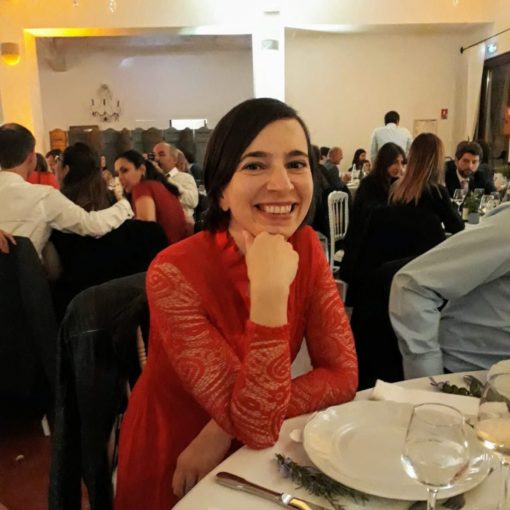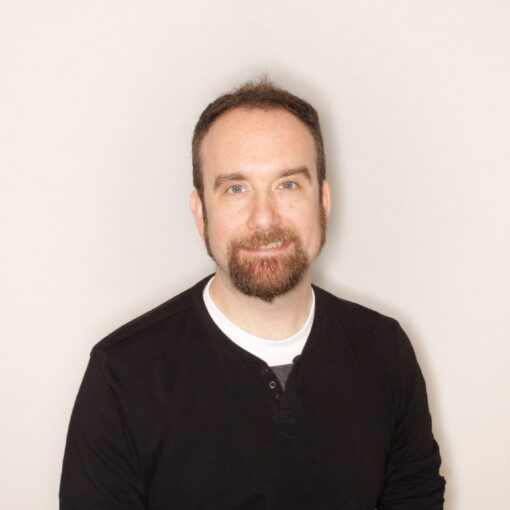PhD in Environmental Microbiology awarded by the University of Manchester
| Researcher Developer | |
|---|---|
| University of Manchester (and self-employed) | |
Year entered into a non-academic position: 2003
Job highlight:
Spending much of my day talking with highly talented and motivated researchers and supporting them in their journeys.
My research training set me up to…:
Understand how academic research works.
Think critically over complex, multifaceted issues (like our careers/lives).
Build a deeper understanding of diversity, in all its forms, within the higher education sector.
Find out I love working with people (more than microbes!).
Left academia after:
PhD
What’s your background?
When people ask me what I do, I usually say “I trained as a microbiologist, but now I support researchers with their career and professional development.”
My academic training is in microbiology. I did an undergraduate degree at the University of Bristol in Pathology and Microbiology with an industrial placement at AstraZeneca Pharmaceuticals, where I also returned as a graduate to work. I finished my undergraduate degree set against the idea of doing any further study, but on returning to AstraZeneca I felt I was going to have the best career options open to me as a scientist, if I had a PhD. So, I applied for PhDs and took the opportunity at the University of Manchester as it maintained a link with industry (a BBSRC CASE PhD studentship) and was an applied project. On starting the PhD my aim was to return to industry.
During the PhD I changed my mind about what I wanted to do. I decided I’d like to look for opportunities where I worked more with people than petri dishes! I attended a GRADschool where we spent 3 days doing different activities that helped explore what we might do after a PhD and showed how our skills could be used in a range of different sectors. I spoke with my supervisor and she suggested environmental consultancy. As I wrote up, I tried for about 6 months to get into environmental consultancy but without much success. I started volunteering full time at an environmental charity called Groundwork to build more relevant experience, but I still struggled to find a role in the environment sector. I spread my net wider and decided to apply for ANY role I thought I could do, then I would carry on applying from there. I saw a job come up at the Careers Service at the University of Manchester that was running a project supporting the careers of PhDs and also aimed to encourage students to get involved in volunteering. I decided that as I had a PhD, and was currently volunteering, I’d apply!
When I got the interview, on the panel was Elizabeth Wilkinson who had been one of the tutors of the GRADschool! She became one of the people I relied on for mentorship and support throughout my career.
I found love in the work I did at the Career Service. It fed very effectively into my primary values of services and kindness. Through this role I trained on-the-job in career guidance. Later I took a certificate in Training Practice and another in Coaching and Mentoring.
I’ve been at the University of Manchester for 20 years now. I’ve held four different roles between the Careers Service and Researcher Development over this time. In 2018, I formed my own consultancy to provide career and professional development support to individuals and other institutions. I maintain this work alongside working less-than-fulltime at the University of Manchester.
Why did you move away from academia?
I’m not sure I have!
My motivation for doing a PhD was to progress in the pharmaceutical industry, to which I’d planned to return. I never intended to be an academic researcher. I never decided to ‘move away’ as the PhD was a means to develop my (industrial) career.
It is indeed odd how life works out, as rather than taking the path I planned for myself, I possibly moved more ‘into academia’ than I ever intended.
Is there anything you miss about academia?
The things I loved about doing a PhD were: the independence of thought I was allowed (and still have today); talking to passionate people at conferences about what they are doing (I still do that today); and the feeling that I was contributing something to improve the world.
I’m still very much part of academia even if I’m not an academic researcher. Some of my friends and peers are professors now, and there are quite a few similarities between our roles and experiences!
How did you get this job? Did you face any challenges when considering a move away from academia or applying for the role?
One of the biggest challenges I found when applying for roles after a PhD was my own mindset. I had an internal dialogue going on that was telling me that I was wasting my education (if I wasn’t a microbiologist); that people outside academia don’t value a PhD; and I’d need to start at the bottom and work my way up.
What helped me to shift my thinking was understanding how to write and talk about my PhD experience in a way that other people could relate to. For me this came from finding a list of skills that PhD students typically develop and talking to a career guidance professional about how to evidence these skills.
This was a turning point in my thinking about myself and my experiences.
If this resonates with you check out the Researcher Development Framework (www.vitae.ac.uk/rdf) which is the much up-dated version of the list I looked at over 20 years ago!
What motivated you to/why did you choose the sector you transitioned into?
Honestly, I needed a job!
I took my first job in the Careers Service as a ‘stop gap’. I intended it to be temporary whilst I looked for something different. I found I absolutely loved it and have been doing it ever since!
Did you think you had the skills required for your current position before you started? How did your PhD prepare you for your current job?
I had the experience needed, but I wasn’t sure if the interview panel would see the transferability of the skills I had. With hindsight that was something I really didn’t need to worry about as the Careers Service and the project were ALL ABOUT the transferrable nature of PhD skills into a range of sectors.
When I was waiting to be called for an interview, I had a little wobble as the candidate next to me was talking about all their admin experience. I was thinking “I don’t have any of that!?!” and I didn’t think this job was about admin – it turned out I was right!
How did your PhD prepare you for your current job? For example, what were the transferable skills that you developed during your PhD that are most relevant to your current job?
I had a range of opportunities in my PhD that have helped in my current role. Some directly related to the work of my PhD, but most related to the other things I did.
As a PhD student, I attended a GRADschool, in my first role I ended up running GRADschools. I took part in a biotechnology competition (BiotechYES), later I helped prepare students and postdocs to take part.
I also organized seminar series and traveled to international conferences as a PhD. In all my roles since I have designed and delivered events, workshops and conferences.
I was a Graduate Teaching Assistant for 4 years supporting practical classes and supervising summer and final year undergraduate students. This gave me a great insight into teaching design and delivery, as well as supervision. These are the skills I use on daily basis.
Did you have any preconceptions about your sector that proved to be wrong?
So many!
I thought I understood how PhDs worked. Actually, I understood how bioscience PhDs at the University of Manchester worked.
It was a huge surprise to me that in other subject areas people write their thesis proposals, that PhD funding can be a difficult thing to secure and that you might study at less than fulltime!
I was also quite shocked by the inequity within the Higher Education sector at the time, which until I graduated and started working in the sector hadn’t been so immediately obvious. I’ve seen things improve but there’s always more that can be done.
Can you describe a typical week in your job?
I have a lot of autonomy to manage my time and how I work. I will have some things set during the week like catch up meetings with the team I’m part of and training that must be delivered, but apart from that I manage how and when I get things done.
Typically, I will spend 3-9 hours on delivery a week, this could be on campus or online, to groups ranging from 6 to 100 people. Around 4-6 hours I spend doing one-to-one support work. This could be career guidance, application reviews (jobs, fellowships, funding) or practice interviews.
Each week I will also need to write new material for workshops, courses or online content. I also regularly review existing content.
The remainder of my time is probably spent doing what I call ‘enabling’. This might be answering queries from researchers and academics about where to find certain resources; planning new events; building new collaborations within and external to the university to work on developing the research culture and environment for researchers at the University of Manchester. For example, I’m currently working on a mentoring program for mid-career academics and joining up with Greater Manchester universities to support research fellowship applications.
I also spend time mentoring others at a variety of career stages and in a range of jobs. I attend sector conferences. Belong to sector focus groups. All of this is to make the academic research environment as inclusive and enabling as possible.
What is the workplace culture like? Please include comments on work-life balance, flexibility, remote working?
Working in careers / researcher development is great! Pretty much all the people I’ve encountered working in these roles are interested in making the world a better place, and that includes in their own teams!
I’ve worked all sorts of working patterns and been trusted to manage my own workload. I’ve raised two children and worked part-time for 12 years. I’ve had periods of sick leave, and compassionate leave to care for my terminally ill mother. This is one of the reasons I’ve stayed working in this sector and at the University of Manchester for so long – it enables me to contribute whilst recognizing that I have a life alongside my work.
Currently our team has a campus day once a week, but some weeks I’ll spend all four days on campus if I’m delivering sessions on campus. Other times I’ll only be in on our campus day, working from home the rest of the time.
Do people with a PhD frequently get hired in the company/sector?
Yes. Currently all the Researcher Developers in our team have PhDs, but this isn’t always the case. We also come from a range of disciplines.
There are also Career Consultants with PhDs, often working with postgrads and / or postdocs.
What are your favourite parts of your job?
The favourite part of my job is when someone who you’ve been working with “gets it”. What do I mean by “gets it”? They realize what they need to do to progress to whatever they want to do next. You can see the path clear in front of them and you know it’ll work out OK.
What are your reflections on your career path?
I’ve ended up in a career I never set out to have. I set myself plans and had ideas, these were helpful in providing purpose and direction, but ultimately I took a role based on the skills I was interested in using (communication skills and project management). Being open to trying out different things has really worked for me – I found the job I love!
Do you have any advice for current graduate students and postdocs considering a career outside of academia?
Haha – of course – That’s what my entire role is about! I’ll pick 3 keys things:
- Be curious. Talk to people about what you’re interested in. Talk to people about their jobs. This is a valuable way to build your understanding. Think of it like data collection for your career!
- Spend time thinking about your strengths, your experiences, the things you’ve enjoyed doing that someone might pay you to do! Being reflective doesn’t come naturally to many people so find someone who can help you – friends, family, peers, supervisors, mentors.
- Remember with a PhD you are ultimately employable (the data says so!). Who else could have done the project you have completed, in the way you did it? No-one! Find the language you need to express the value of your academic research experience to those who may be from different backgrounds.
What do you know now that you wish you’d known when exploring a transition?
For me I struggled with a vision of my professional identity when I transitioned. I’d come from an academic background of microbiology where I was the world expert on my small piece of research. How could I possibly stand in front of people and tell them how to put together a CV without doing PhD level research into it?! It felt like having ‘imposter syndrome’ where you think you’ll get found out at any moment.
Over time I realized that I’d come from an unusual environment (PhD/Academic research) and now I inhabited somewhere different where that level of depth wasn’t needed (or necessarily helpful). I also learnt how to value and trust the feedback I got from the people I worked with – both clients and colleagues.
Can you recommend any relevant resources, organisations or events that might help somebody new to the sector find out more about it?
Here’s a link to my weje board (in constant development), it is where I keep useful resources I think people might find helpful: Career inspiration outside academic research (weje.io)
 I work for the University of Manchester (www.manchester.ac.uk) and lots of PhDs and postdocs do a range of roles within the university Professional Services. Use jobs.ac.uk to explore the range of opportunities within professional services.
I work for the University of Manchester (www.manchester.ac.uk) and lots of PhDs and postdocs do a range of roles within the university Professional Services. Use jobs.ac.uk to explore the range of opportunities within professional services.
The Researcher Development team (www.researcherdevelopment.manchester.ac.uk) offer student internships to UoM doctoral candidates. Postdocs based at Manchester are also able to ask to complete a 3-month period of work experience with our team if they qualify for the contract-extension scheme.





